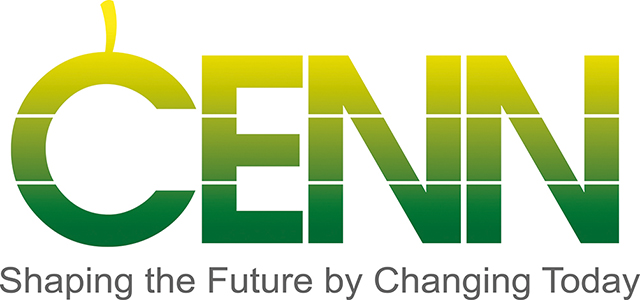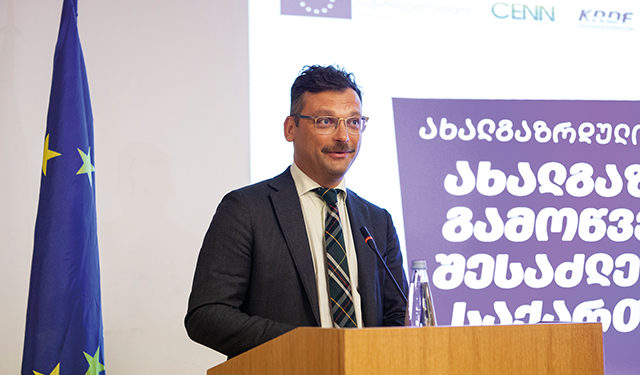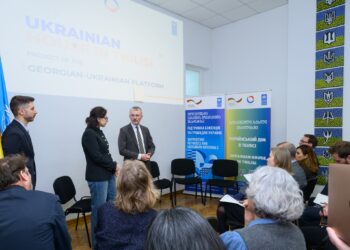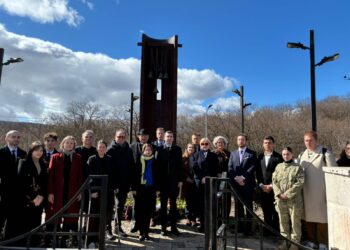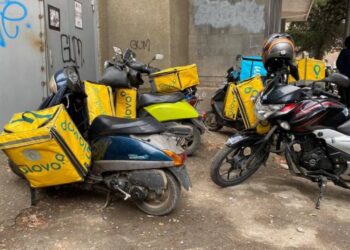Organized by CENN and supported by the European Union, Tbilisi hosted a youth conference dedicated to the European Year of Youth. The conference brought together up to 150 people, including motivated young people from all over Georgia; local, national and international actors active in the fields of youth, education and social entrepreneurship; and green economy organizations to address key issues concerning sustainable youth development.
“I am glad to see many young people here today, who have come from different regions of Georgia,” Deputy Head of Cooperation of the EU Delegation to Georgia, Catalin Gherman, told us. “It is essential to analyse the role that young people can play in the development of society and to consider their involvement not only in the long run, but first and foremost in the present. We are investing in this and the European Year of Youth, and the purpose of this conference is to support young people participate in change not only in the future, but today.”
The meeting was held in an informal setting. Participants had the opportunity to ask questions and be interviewed by representatives of various organizations at the conference. This was a unique opportunity for the participants to acquire interesting information on the following topics: Youth Policy in Georgia – the Current Situation and Future Vision; Economic empowerment of young people through entrepreneurship – young social entrepreneurs from Georgia; Youth empowerment tools and best practices – the importance of youth hubs, clubs, eco-clubs and spaces; and Youth volunteering and its benefits.
“First of all, I would like to congratulate the youth of the Year of Youth,” said CENN Executive Director, Nana Janashia. “I want to thank all of the participants, the youth organizations, the youth agency, and of course, the EU delegation for being here and for the political support it is providing in general. Today’s meeting has two purposes: to connect young people and organizations with each other and to discuss and advocate for youth policy and strategy. I hope this day was a success for our guests and the youth will gain new opportunities.”
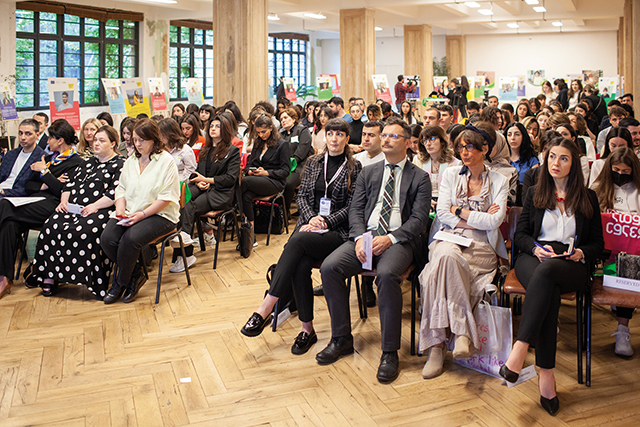
The conference was dedicated to the 2022 European Year of Youth, which is an important step in recognizing the significant contribution of young people to their rights and society. The Year of Youth also represents one of the main tools of youth support and a symbol for overcoming the pandemic’s severe consequences. During the pandemic, the health status of young people and their employment rate significantly deteriorated. Furthermore, online learning posed many challenges to young people in Georgia and across Europe.
Youth organizations, leaders, stakeholders, and participants had the opportunity to attend discussions and to network.
Thematic discussions at the conference were held in four stages: “Youth Policy in Georgia,” moderated by World Vision representative, Irakli Giorbelidze. The panel participants were the EU Delegation to Georgia; Youth Agency of Georgia; UNFPA; NCYOG; and APD. This panel gathered experts from different sectors working on the development of youth policy in Georgia. During the first half of the panel discussion, the speakers brought up key aspects of the development of the sector and shared the main challenges in the establishment and maintenance process of the youth policy strategy with the audience. Youth attending the conference were also able to ask questions and share their opinions and views regarding the youth policy.
“The EU for the Economic Empowerment of Young People” panel was moderated by CENN representative Natela Lagurashvili. This session was particularly interesting as it was a topical issue: the employment and empowerment of young people. This panel featured young entrepreneurs from various regions. The panel participants were “@Rundtea”, production of herbal tea in the Javakheti region; “Bamane”, a sewing enterprise from Gori; “Almazi”, a tourism centre from the Javakheti region; “Steps”, a youth development and socialization centre from the Javakheti region; “Ecolife Consulting”, an environmental consulting center from Kvemo Kartli; and the European Business Association. Within this panel, guests had the opportunity to see a presentation about the project under which this event was held. The speakers spoke about the main results of this project and what opportunities it has provided to young people over the last two years.
“The importance of Youth Hubs, Clubs and Centers (results and future plans) panel was moderated by Natela Lagurashvili. Its participants were: World Vision Georgia – SKYE clubs; UNAG – Youth Centres; Gori Rural Innovation Knowledge Hub member; Ninotsminda Rural Innovation Knowledge Hub member; and an Akhmeta Rural Innovation Knowledge Hub member.
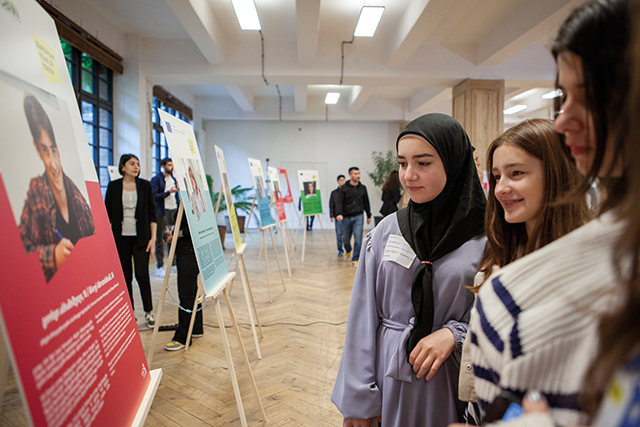
The main topic of the third session was to discuss the importance of educational and co-working spaces, especially in rural areas where many vulnerable young people are living that do not have access to any technologies or education. During this panel, a variety of perspectives were presented. On one hand, young people shared their opinion as to why they consider co-working spaces to be crucial for local youth communities and what their needs and wishes are for the future in terms of establishing additional co-working spaces. On the other hand, international organizations such as UNAG and World Vision Georgia, who provide various services for rural youth, shared information about their ongoing opportunities and programs for the youth who would like to engage themselves in various activities.
“Youth Activism and Non-formal Education” offered a the thematic discussion highlighting the success stories of young volunteers and youth eco-activists. The session was moderated by CENN representative Giorgi Kavteladze. The panel participants were the Volunteer Ambassador; Europe Foundation; Volunteer Hub; Helping Hand; Volunteer, EU4Youth beneficiary; Sachkhere N2 Public School Eco-club; and the Young European Ambassador. During the fourth session, the speakers spoke about youth activism and non-formal education. Former volunteers who volunteered for a number of projects and had a major impact on the decision-making process in the municipality attended this thematic discussion.
The aim of the conference was to hold discussions and debates about current trends, challenges and opportunities for youth. During the conference, participants also discussed challenges and ways to address them, based on examples from youth organizations, associations and groups, and best practices.
By Mariam Mtivlishvili

